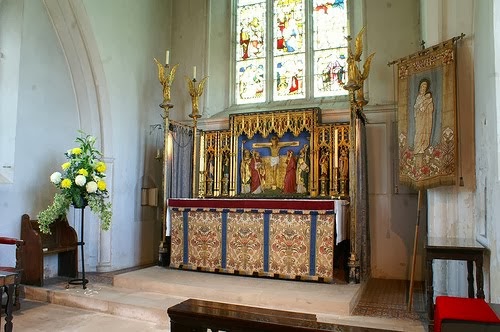A Real Live One:
Speaking from a scholars background, Traditional Catholicism has a lot to love. In so far as it makes the case to restore long since forgotten liturgies of various local flavors of the Latin tradition, it exemplifies the very best idea of liturgical plurality. But it is this fact that makes it so unappealing to the larger currents in the Latin West. Recovering the obscurities of Latin Christianity has failed to influence the larger liturgical stream; it is an eccentric's task or the lonely research of a scholar. It simply does not press any weight upon the broader Church or the liturgical imagination. Set side-by-side with mainline Catholicism or the Traditionalists, this group cannot help but to be the odd one out. Its work produces intelligent conversation, but the implicit ecclesiology leaves many religious observers slightly uncomfortable ...
There is also the simple fact that this position may well be too academic to be viable. Betwixt the rediscovery of ancient forms, there is often a fair amount of reconstruction going on. Fine at the academic level, but hardly a sure basis upon which to rest religious observance.
Absolutely correct. As this, and a series of other recent articles, make clear the work of modernism prepared the foundation and formed all the precedent necessary for the wreck-o-vation of post-modernism. This leaves the only alternative to be an inquiry into where, in the course of post-modernity, did things go (precisely) wrong? 1947? 1955? 1962? 1965? 1970? etc. It is this discussion -- as found prominently here -- that represents the only viable "stream" of traditionalism. And their only modus: freezing in place.
The unviable (and unenviable) approach represented here is simply one long process of mourning what has been lost (see below and alia). It cannot be a religio. It is solitary, internal exile in an intellectual Littlemore.
You're living in your own Private Idaho.


No comments:
Post a Comment